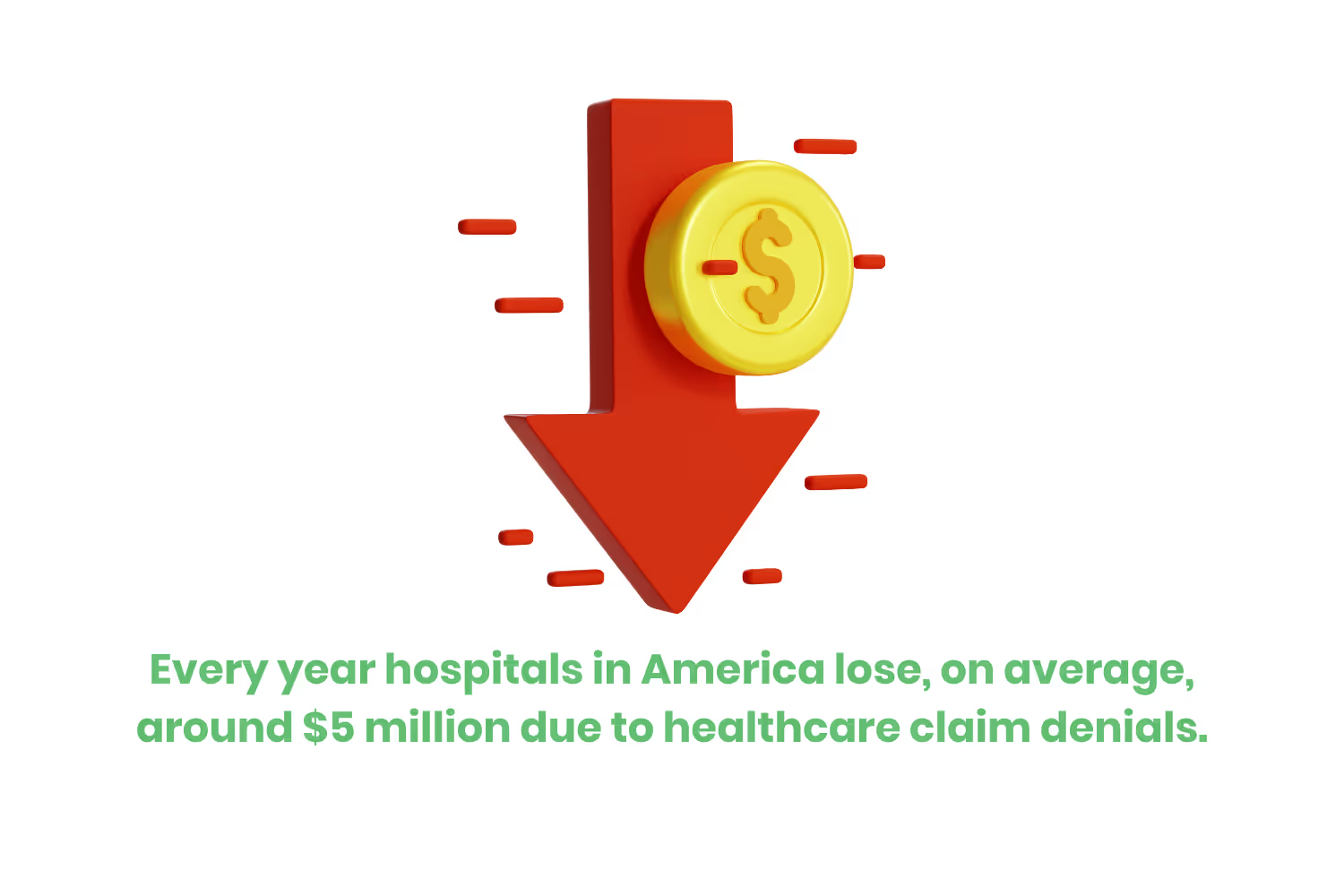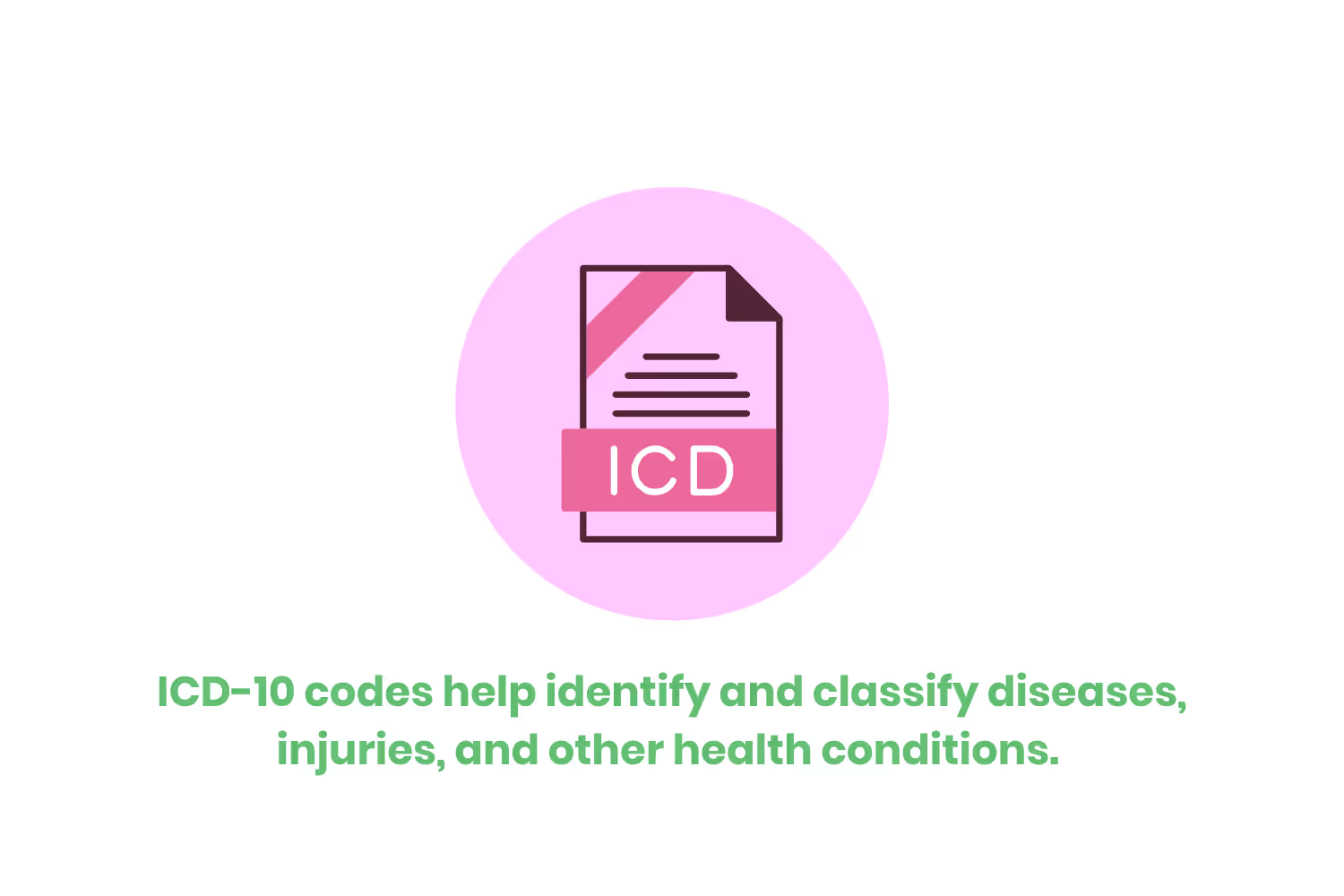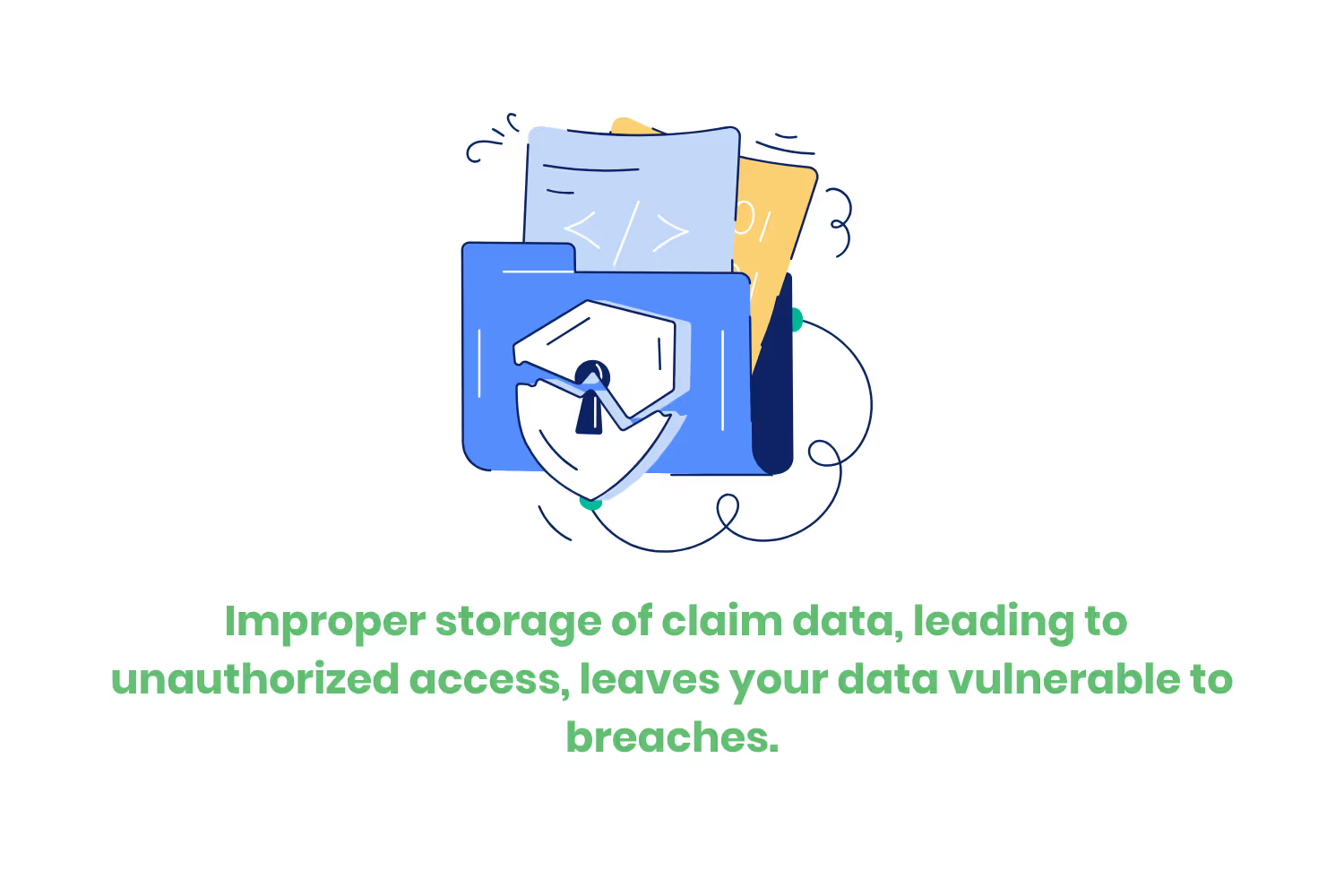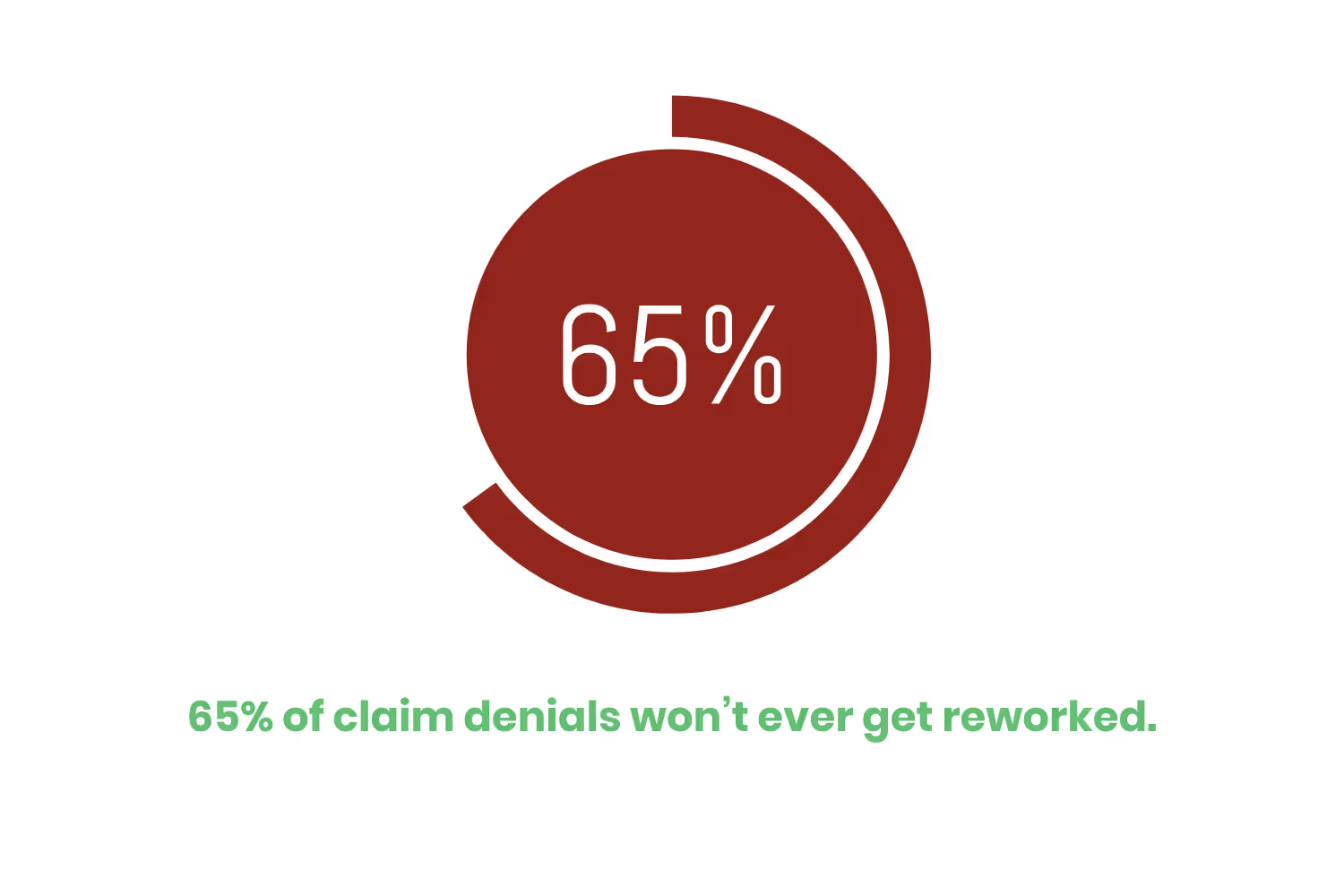Claims Data: A Hidden Revenue Killer
In this blog we dissect what claim data is, the consequences of not addressing it, and how to fix it. This is definitely something you don’t want to sweep under the rug.

Every year hospitals in America lose, on average, around $5 million due to healthcare claim denials. This amounts to about 5% of these hospitals’ net patient revenue. That’s a huge percentage when it comes to lost revenue!
If you’re a returning reader, you know that we’ve gone over claim denials before. More specifically, what causes them and the different denial codes that medical billing professionals associate with them. But on a larger scale, what causes claim denials is this: poor claims data.

So, is your practice leaving money on the table when it comes to your medical billing process? Today we are going to dissect what claim data is, the consequences of not addressing it, and how to fix it. This is definitely something you don’t want to sweep under the rug. So let’s get started!
What is Claims Data in Healthcare?
Claims data is information that providers submit to health insurance companies when requesting payment for rendered services to a patient. This is also known as administrative data. These electronic records exist on a large scale. They provide information on the interactions between patients, healthcare providers, and insurers. Millions of doctors’ appointments, bills, insurance information, and so on are regularly collected and stored in claims databases.
This data typically includes:
- Diagnosis Codes. Otherwise known as “ICD-10” codes. Helps to identify and classify diseases, injuries, and other health conditions.
- Procedure Codes. You can also call these Current Procedural Terminology or “CPT” codes. This is universally accepted medical terminology used to bill insurance companies for services given.
- National Provider Identifier. Also known as NPIs. This is essentially like a healthcare provider’s social security number.
- Service Dates. Pretty much how it sounds. Recording when a service takes place. This helps with bettering patient outcomes as well as streamlining internal billing processes.

Claims Databases
Several different claims databases are available, depending on the type of data compiled. Including the claims data from the Centers for Medicare and Medicaid Services (CMS). The Agency for Healthcare Research and Quality (AHRQ) is developing an all-payer claims database (APCD), which is a large state database that includes:
- Medical claims.
- Pharmacy claims.
- Dental claims.
- Eligibility and provider files collected from private and public payers.
While this information is currently available on a state level, the AHRQ hopes to develop a complete database. One that would advance healthcare affordability, cost transparency, and streamline efficiency.
Common Challenges with Claims Data
There are a few common challenges when it comes to ensuring accurate claims data. First and foremost, missing or incorrect information. This can be anything from patient demographics to insurance information. Even a misspelled name can cause a denial code.
Using outdated ICD-9 codes instead of ICD-10, and not including the correct modifiers, is another common mistake medical billers make when compiling claim data. This inconsistent documentation and coding can easily lead to a bogged-down revenue cycle.
Many practices seek to relieve some of the pressure by relying on innovative technology such as the following:
- EHR platforms
- Billing software
- Clearinghouses
- Payer portals
This is a great idea, but only when executed the right way. For instance, if these systems are independent of each other, they can have issues connecting and sharing data. Leading to more incorrect claims data. Note that integrating these helpful tools through one revenue cycle management system is highly encouraged.

Challenges can reach even further beyond billing complexities and into the realm of data security. That is because improper storage of claim data, leading to unauthorized access, leaves your data vulnerable to breaches. Even the most honest of mistakes can lead to compliance penalties, such as a Health Insurance Portability and Accountability Act (HIPAA) violation.
Mistakes, delays, and denials caused by poor claims data are highly problematic. Let’s go into more detail about what exactly happens when companies ignore these incorrect claim data practices.
What Happens When Claims Data is Messy
So what happens when your claims data isn't up to standard? How can something like that lead to a large revenue loss? The accuracy of your claim data impacts your reimbursement and cash flow in several ways. First, and we’ve already touched on this, you are likely going to have an influx of claim denials.
Claim denials are what providers receive when an insurance company denies their request for coverage of services provided to a patient. You can usually find information regarding a denial code in the electronic remittance advice (ERA) of a claim. This is where you will find the denial code.
Did you know that on average it costs about $25 to $117 to rework just one denied claim? On top of that obvious revenue loss, 65% of denials won’t even get reworked. This equals pure revenue loss. It also adds to the administrative burden and causes payment delays the longer claims data goes uncorrected.

Poor claim data and rushed reworked denials can also put your company at risk for compliance issues or audits. Non-compliant billing doesn’t just affect your bottom line, it puts your reputation as a practice at risk. Government agencies such as CMS regularly audit claims for accuracy and compliance.
If there are repeating instances of poor claims data that aren’t getting fixed, it could trigger an investigation into your billing practices. Even if it is an innocent mistake, using the wrong codes for example could look like upcoding to an auditor. Leading to hefty fines and penalties.
Finally, you’re likely going to be looking at administrative headaches and overall “employee burnout” if you don’t prioritize accurate claims data. Constantly having to fix the same mistakes over and over not take your team away from more important tasks.
The RCM Solution: Fixing Claims Data to Maximize Revenue
So you have some poor claims data to adjust. You don’t want your financial health to tank but don’t know where to start. Lucky for you, I’m going to go into the best ways to fix it! Starting with the most important and helpful tip: invest in a Revenue Cycle Management (RCM) company.
These companies play a huge part when it comes to organizing your claims and avoiding unnecessary errors. RCM companies provide error detection by implementing claims scrubbing software that flags poor claims data before it gets sent to the payer. This way you can quickly fix any mistakes and avoid waiting days or even weeks just to get a denial back instead of your reimbursement. This alone will significantly reduce your claim denial rates.

RCM services also include real-time eligibility verification. This helps to prevent further denials due to a patient’s inactive insurance policy or outdated coverage. Eliminating another common reason billing teams receive claim denials. RCM systems also ensure that payer rule updates get updated in real-time. Keep CMS regulations, commercial payer policies, and NCCI edits at your company’s forefront.
You can also use RCM services to practice data-driven denial prevention. This is by accessing and analyzing past data trends in claim issues, and then adjusting your processes to avoid them in the future. Your billing team can pinpoint high-risk claims before they send them to the payer, allowing for thorough double-checking and proactive corrections.
Operational efficiency by integrating billing systems under one RCM solution is another positive. Consolidating your data into one database helps your team stay focused and streamline their workflow. No longer will they waste time hunting down missing information through different systems, using multiple logins and passwords. Data is now centralized in a single transparent system which keeps your data secure, compliant, and organized.
Conclusion
Poor claims data can impact your bottom line in a big way. And as you can see, not in a good way. Because high denial rates, compliance risks, and administrative burdens caused by poor claims data all lead to financial loss. So ignoring these errors is not an option.
RCM solutions help companies better streamline their billing process and avoid these unnecessary errors. From claims scrubbing to eligibility verification, these tools offer you peace of mind while collecting your revenue. Maximize your performance, minimize risks and errors, and reduce administrative burdens by investing in an RCM for your billing needs!
Emphasize your product's unique features or benefits to differentiate it from competitors
In nec dictum adipiscing pharetra enim etiam scelerisque dolor purus ipsum egestas cursus vulputate arcu egestas ut eu sed mollis consectetur mattis pharetra curabitur et maecenas in mattis fames consectetur ipsum quis risus mauris aliquam ornare nisl purus at ipsum nulla accumsan consectetur vestibulum suspendisse aliquam condimentum scelerisque lacinia pellentesque vestibulum condimentum turpis ligula pharetra dictum sapien facilisis sapien at sagittis et cursus congue.
- Pharetra curabitur et maecenas in mattis fames consectetur ipsum quis risus.
- Justo urna nisi auctor consequat consectetur dolor lectus blandit.
- Eget egestas volutpat lacinia vestibulum vitae mattis hendrerit.
- Ornare elit odio tellus orci bibendum dictum id sem congue enim amet diam.
Incorporate statistics or specific numbers to highlight the effectiveness or popularity of your offering
Convallis pellentesque ullamcorper sapien sed tristique fermentum proin amet quam tincidunt feugiat vitae neque quisque odio ut pellentesque ac mauris eget lectus. Pretium arcu turpis lacus sapien sit at eu sapien duis magna nunc nibh nam non ut nibh ultrices ultrices elementum egestas enim nisl sed cursus pellentesque sit dignissim enim euismod sit et convallis sed pelis viverra quam at nisl sit pharetra enim nisl nec vestibulum posuere in volutpat sed blandit neque risus.

Use time-sensitive language to encourage immediate action, such as "Limited Time Offer
Feugiat vitae neque quisque odio ut pellentesque ac mauris eget lectus. Pretium arcu turpis lacus sapien sit at eu sapien duis magna nunc nibh nam non ut nibh ultrices ultrices elementum egestas enim nisl sed cursus pellentesque sit dignissim enim euismod sit et convallis sed pelis viverra quam at nisl sit pharetra enim nisl nec vestibulum posuere in volutpat sed blandit neque risus.
- Pharetra curabitur et maecenas in mattis fames consectetur ipsum quis risus.
- Justo urna nisi auctor consequat consectetur dolor lectus blandit.
- Eget egestas volutpat lacinia vestibulum vitae mattis hendrerit.
- Ornare elit odio tellus orci bibendum dictum id sem congue enim amet diam.
Address customer pain points directly by showing how your product solves their problems
Feugiat vitae neque quisque odio ut pellentesque ac mauris eget lectus. Pretium arcu turpis lacus sapien sit at eu sapien duis magna nunc nibh nam non ut nibh ultrices ultrices elementum egestas enim nisl sed cursus pellentesque sit dignissim enim euismod sit et convallis sed pelis viverra quam at nisl sit pharetra enim nisl nec vestibulum posuere in volutpat sed blandit neque risus.
Vel etiam vel amet aenean eget in habitasse nunc duis tellus sem turpis risus aliquam ac volutpat tellus eu faucibus ullamcorper.
Tailor titles to your ideal customer segment using phrases like "Designed for Busy Professionals
Sed pretium id nibh id sit felis vitae volutpat volutpat adipiscing at sodales neque lectus mi phasellus commodo at elit suspendisse ornare faucibus lectus purus viverra in nec aliquet commodo et sed sed nisi tempor mi pellentesque arcu viverra pretium duis enim vulputate dignissim etiam ultrices vitae neque urna proin nibh diam turpis augue lacus.




